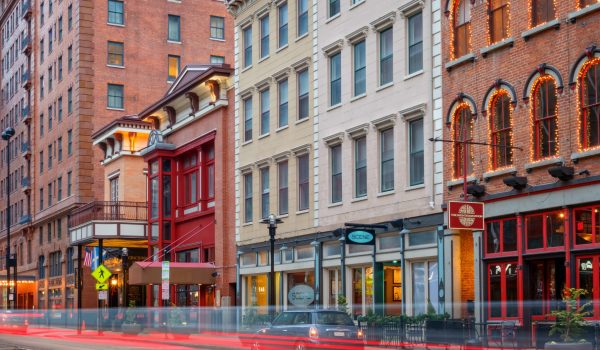The National Labor Relations Board (NLRB) recently issued a welcome decision that affords employers greater control over public areas (e.g., cafeterias or restaurants) located on their private property. In doing so, the NLRB overturned 38 years of dubious precedent. Employers now can prohibit nonemployee union representatives from engaging in promotional or organizational activity (e.g., solicitation and distribution) in their “public spaces” absent evidence of inaccessibility or activity-based discrimination – high burdens of proof for a union. UPMC and SEIU, 368 NLRB No. 2 (June 14, 2019). This decision will be applied retroactively.
Background
In 1956, the Supreme Court established the standard governing nonemployee access to an employer’s property. NLRB v. Babcock & Wilcox Co., 351 U.S. 105 (1956). Distilled to its essence, an employer could deny access to its property by nonemployee union organizers with two exceptions: the union has no other reasonable means of communicating its message to employees (the “inaccessibility” exception) and the employer discriminates against the union by permitting other outside groups access to its property (the “discrimination” exception).
In 1982, the NLRB created an additional “public space” exception to an employer’s right to control its property. See, Ameron Automotive Centers, 265 NLRB 511 (1982). It held that nonemployee union organizers cannot be denied access to cafeterias and restaurants open to the public if they use that “public space” in a manner consistent with its intended use and are not disruptive. The Ameron decision’s “public space” exception ran contrary to Babcock’s above-referenced principles which apply to nonemployee union access regardless of whether the area on the employer’s private property where the union desires to promote/solicit is closed or open to the public. The Board’s approach was soundly rejected by several federal courts (4th, 6th, 8th Circuits).
Facts
Two union representatives entered the University of Pittsburgh Medical Center’s (UPMC) cafeteria and met with a group of employees. They discussed union campaign matters and displayed union flyers and pins. An employee complained, police were summoned, and the union representatives were removed from the cafeteria. UPMC did not post any directives detailing who could patronize the hospital cafeteria. UPMC did not actively monitor who used the cafeteria. However, once alerted, it would remove nonemployees who engaged in promotional activity.
UPMC Board Rationale
Agreeing with the judicial criticism of this flawed “public space” access exception, the UPMC Board ruled:
“[A]n employer does not have a duty to allow the use of its facility by nonemployees for promotional or organizational activity. The fact that a cafeteria located on the employer’s private property is open to the public does not mean that an employer must allow any nonemployee access for any purpose.”
Applying the Babcock standard, the Board also addressed and discarded the two access exception arguments. It cast aside the “inaccessibility exception” by summarily concluding UPMC employees were not inaccessible by reasonable non-trespassory means. UPMC did not violate the “discrimination exception” because there was no evidence it knowingly allowed any other nonemployee promotional or organizational activity on its premises. It also rejected the General Counsel’s argument that prohibiting nonemployee union representatives but permitting other nonemployees in the cafeteria was per se unlawful discrimination. The Board reasoned, “there is a difference between admitting friends or relatives of employees for meals and permitting outside entities to seek money or memberships.”
Beyond question, the UPMC decision is a victory for employers (especially hospitals) who have public cafeterias or restaurants on otherwise private property. One cautionary note: an employer can deny access for Section 7 solicitation or promotional activities in those public spaces if it denies access to other nonemployees engaging in similar activity. Failure to do so arguably may open the door for union activity.

